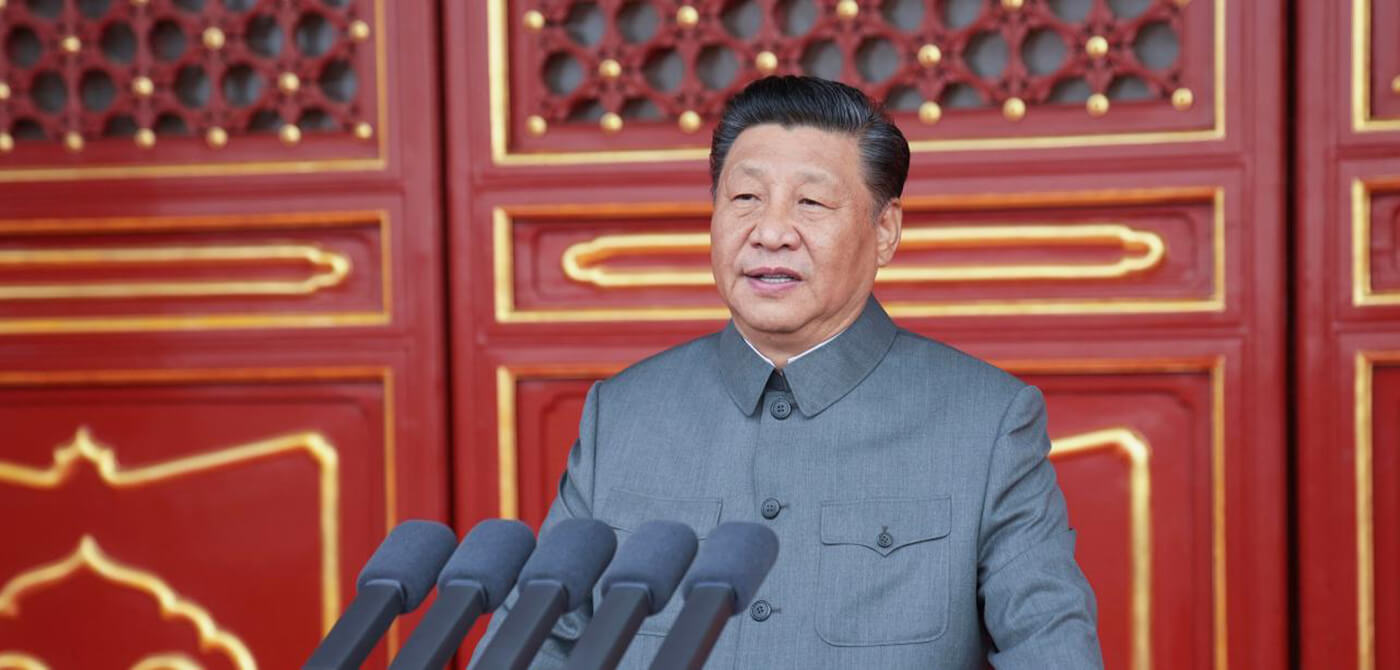1 July 2021 marked the 24th anniversary of the transition of Hong Kong to China under the “One Country two systems” policy and the 100th anniversary of the Chinese Communist Party. Standing in Tiananmen Square in Beijing, Chinese General Secretary Xi Jinping gave a rousing speech to highlight to the world the achievement of lifting China out of poverty, but Xi would not brook any criticism from Western powers.
“We will not accept sanctimonious preaching from those who feel they have the right to lecture us,”
Xi said. “We have never bullied, oppressed, or subjugated the people of any other country, and we never will.” However this does raise the question about people within the Chinese purview.
“By the same token” Xi continued, “we will never allow anyone to bully, oppress, or subjugate [China]. Anyone who tries will find them on a collision course with a steel wall forged by 1.4 billion people.”
It was against this backdrop that the Special Rapporteur on the rights to freedom of peaceful assembly and of association, Clément Nyaletsossi Voule, presented his report on day 9 of the 47th session of the UN Human Rights Council. The report, entitled “Access to justice as an integral element of the protection of rights to freedom of peaceful assembly and association”, addressed the importance of a functional justice system in securing these fundamental rights.
The report reaffirms the importance of protecting these rights in order to prevent future violations and abuses and assist in the fight against impunity.
Between 16 April 2020 and 15 April 2021, the Special Rapporteur drew attention to the situation of over 2080 individuals judged to have had their rights to freedom of peaceful assembly and association infringed upon. Around 75% of victims were women, with the vast majority of communications (72%) sent to the Asia-Pacific region.
In his opening statement, the Special Rapporteur acknowledged the adverse effects of the pandemic on many states’ judicial systems, saying that:
“some courts were closed during the pandemic, which affects negatively the provision of timely and fair hearing, sometimes leading to the prolonged detention of protesters in some context, also, the security measures that state put in place, constitute also some barrier for people to access to justice”
The report provides several recommendations to help states protect the rights to peaceful assembly and association. The recommendations include encouraging governments to introduce provisions that guarantee access to justice in future legislation, ensure investigations into alleged infringements are independent, thorough and prompt and urges non-state actors to continue advocating for adequate rights protections.
The representative of the People’s Republic of China was extremely critical of the report, stating that it “disregarded facts [and] confused, violent, illegal activities with peaceful assembly”. They were also vocal in their criticism of the United States and other Western countries’ “double standards” with regard to human rights, stating that disparities between the reaction to the storming of the Hong Kong legislative council in 2019 and the attack on the US congress earlier this year demonstrate that:
“US politicians do not genuinely care for human rights at all, but rather use it as a tool to attack other countries, or interfere in their internal affairs”
In Hong Kong earlier in the day the deputy chief executive John Lee had spoken of life in Hong Kong a year after the introduction of the national security bill.
“While safeguarding national security, residents continue to enjoy freedom of speech, freedom of press, freedom of assembly and demonstration and others according to the law.”
So it was interesting that at the same time as the Chinese diplomats were condemning a UN report on the freedom of assembly, police in Hong Kong were closing the parks to ensure no one could gather to protest.
Back in Geneva the representative of the Russian Federation also expressed criticism regarding “disproportionate and excessively harsh measures” employed by Western governments in response to mass Covid-19 demonstrations, stating that,
“authorities reaction to them, was mostly extremely violent and brutal, water cannons, pepper spray, police dogs were used this spring in the Netherlands, Germany, France, Belgium, Austria and in the US”
The Russian contingent also condemned the United Kingdom,
“In the UK, the new bill expanded the powers of the police alone to restrict even peaceful demonstrations, peaceful protests against the bill was suppressed by courts”
Returning to make their point that,
“European and US authorities clearly violate freedom of expression and assembly in a number of cases they also encroach on freedom of the media and other safety of journalists were urged to the above mentioned States to strictly comply with their human rights obligations”
On the other side of the argument, the representatives for the US and UK both expressed their resolute support for the Special Rapporteur’s mandate, with the US stating that:
“limiting people’s ability to peacefully protest and organise to influence government policies, reduces stability, transparency and accountability and open door for corruption affects society as a whole”
This sentiment was echoed by the UK’s representative, who said that:
“We agree that access to justice is vital to protecting the rights of freedom of peaceful assembly, and association, and that these threats contribute to combating impunity, facilitating accountability and helping prevent future violations and abuses”
The Special Rapporteur ended the session by reaffirming that the report is intended to ensure:
“that the access to justice is understood as important and integrate elements of the protection of these fundamental freedom.”

